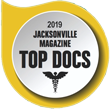The treatment model used by the Awakening Recovery Center recognizes that a patient’s chemical dependence is likely a result of neurobiological, physiological, and environmental (social) issues that will need to be addressed in treatment in order to develop positive outcomes and move from simply being abstinent into early recovery.
Awakening offers the choice of addressing the neurobiological component with the use of the use of craving reduction medications if medically indicated; the physiological with individual and group cognitive-based therapy; and the environmental (social) with learning new ways of living life when freed from the yoke of physical cravings.
Alcohol and other drugs negatively impact the brain’s pleasure/reward system and create brain neurochemical imbalances. One of the reasons that humans like to drink is to obtain the high created by endorphin release and related dopamine release. Stated in another way, “When a person drinks, this begins a neural cascade leading to the release of dopamine”.
Dopamine release is associated with the pleasurable, reinforcing and rewarding effects of alcohol. When a person drinks, his/her brain also releases morphine-like compounds called endorphins that bind to opiate receptors and contribute to a sense of pleasure or well-being. Combined with the release of dopamine, these endorphins seem to create the need to have another drink and cause the pleasurable effects of drinking. Opiate/Opioid antagonists, such as Naltrexone, bind to the endorphins centers in the brain–the same parts that are stimulated by endorphins–but do not activate them. As a result, cravings are reduced and if the alcoholic drinks, the sense of being “high” is greatly reduced.
Removing alcohol and/or other drugs (i.e., being abstinent) can – and usually does – produce overwhelming urges and cravings due to chemical imbalance. It is important to know that:
- This chemical imbalance can be improved with the use of medications combined with quality substance use disorder treatment and participation in recovery oriented behaviors/activities.
- FDA-approved drugs, such as Naltrexone (Vivitrol), and Suboxone help to control cravings and may serve as useful tools in treatment. Other medications are being studied for their utility with cocaine and marijuana cravings.
Awakening encourages each patient to sincerely evaluate the use of medications because long-term experience has taught us that when a patient is free from the physical and mental discomforts created by cravings, they can focus on understanding his/her disease, participating in treatment, getting the disease into remission, and focusing on relapse prevention strategies and long-term recovery.
The use of craving reduction medications makes it possible for many individuals with moderate to severe substance use disorder to participate in formal outpatient treatment and succeed in getting the disease into a state of remission. Management of craving is now a standard part of comprehensive outpatient addiction treatment. Suboxone, Naltrexone and Campral are a few of the anti-craving medications we use.
We’d like to emphasize that these medications are helpful tools that assist in the recovery process; they are NOT cures in themselves. These medications will not solve relationship, family or legal problems created by drinking or using substances. The craving reduction medications are important new tools that can help each individual by “leveling the playing field” (by eliminating urges or cravings) so that other issues can begin to be addressed.
“Overcoming the tremendous hurdle of alcohol addiction usually means overcoming a period of “white-knuckled” craving which is difficult to do without taking a drink. Of the one million Americans treated each year for alcoholism, almost 50% start drinking again in the first few months of sobriety. Naltrexone, among a class of medications called opiate/opioid antagonists, appears to offer hope to alcoholics and is garnering the attention of the medical community. When compared with a placebo in clinical trials, Naltrexone consistently reduced the rate of relapse to heavy drinking as well as the frequency of drinking. Researchers are excited about the potential of these medications.” (See the COMBINE study results)
With the use of these effective medications, cravings are reduced and make the most difficult part of recovery learning to accept that one has a medical condition and practicing how to live life and deal with feelings without the use of substances or self-destructive behaviors.


















